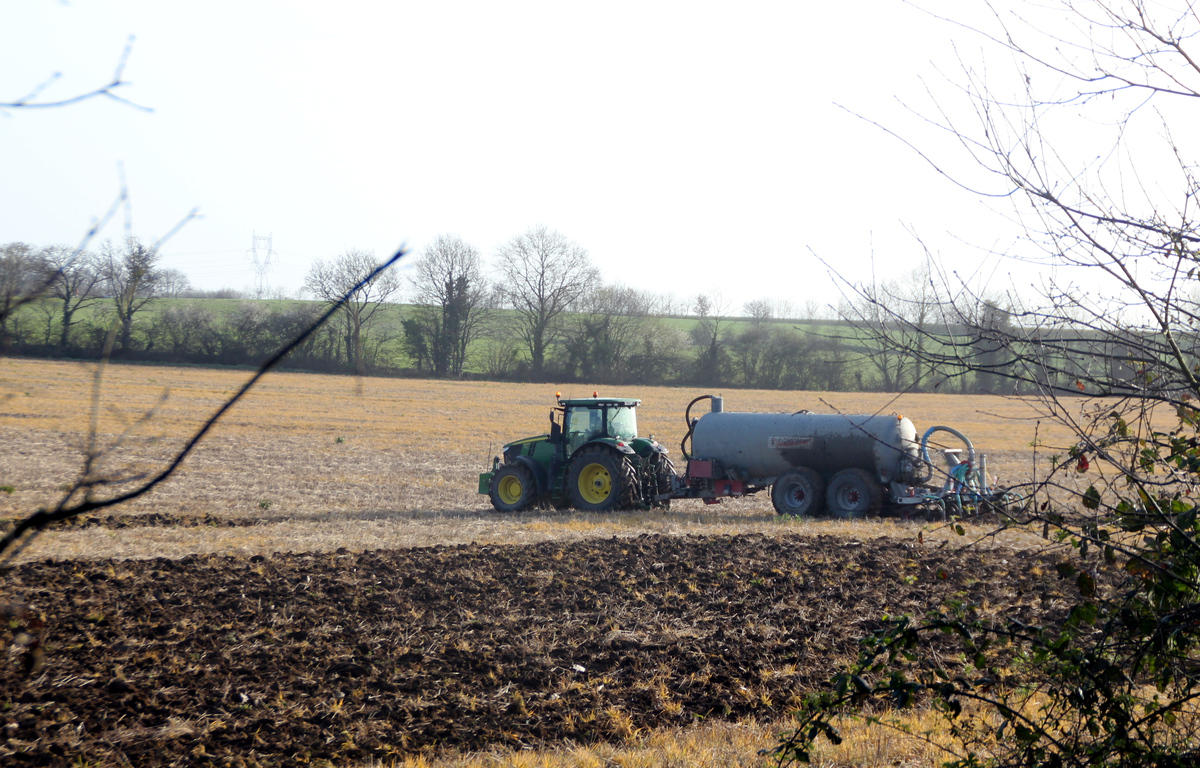
The words are cold in the back, but it is necessary to write them to understand: famine in the world. Since the invasion of Ukraine by Vladimir Putin’s Russian troops, the risk of a food shortage has been proven. Not right away, the world reserves of wheat and grains that currently enable countries to process, feed and consume. But what will happen in a year when Ukraine and Russia, that produce nearly 30% of the wheat on the planet, will not have harvested? In a recent speech, UN Secretary-General Antonio Guterres feared ” a collapse of the global food system In Brittany, the question of food sovereignty raises questions. Relying on the export of fodder and fertilizers from Eastern Europe, France’s main agricultural region strives to meet global demand by producing more. To the point that some want to tear down various environmental regulations perceived as restrictions while the planet is hungry Is the current environmental transition being trampled underfoot?
“Prices are rising everywhere and all commercial circuits are upset. We are going to talk about famine clearly in some countries, especially in the Maghreb in the next months. So what do we do? “. André Sergent is a cow and pig breeder in Finistère. He is also the President of the Regional Chamber of Agriculture of Brittany. Affiliated with the FNSEA, the largest trade union in the field, it does not hesitate to advocating “an agriculture that nourishes”† “Twenty or thirty years ago we were floating, so we got administrative locks. In light of this situation, these locks have to be broken today,” says the breeder.
“We must not give in to panic”
The president of the regional chamber wants the restriction on organic inputs imposed on certain farms to avoid an excess of nitrogen to be reviewed. “We have to destroy some of our material and we continue to import fertilizers from Russia and Ukraine. Give us the chance to use them, it will save us chemistry,” he begs. The problem is that the excessive intake of animal manure poses a real risk to the environment and in particular to water quality. The Breton rivers are already saturated with nitrates and already carry a quantity of nitrogen into the bays, generate green algae in particular† “We must not give in to panic. And above all, do not deviate from our goal of low-carbon agriculture. We must opt for maximum sustainable production without damaging our land, our water and our air. I will personally take care of it,” promises the president of the region Loïg Chesnais-Girard (PS).
Some lobbies have already been agitated in the corridors of agricultural authorities. “We have to stop this over-regulation. We are not going to farm with three cows and two pigs’, criticizes Laurent Kerlir, dairy farmer and chairman of the Morbihan Chamber. The rise in the price of animal feed, fuel, the erratic weather and the armed conflict has led some to fear a more massive use of synthetic products. “The rules are not just there. They were imposed to protect our environment. Farmers are already seeing the effects of climate change. But we feel like it’s all right to question everything. Yesterday it was the health crisis, today it is war in Ukraine,” Jean-Marc Thomas is concerned.
A “more autonomous, better distributed” agriculture
The regional head of the trade union Confédération Paysanne acknowledges that “the risk of tensions on the food supply is real”. To tackle this, his organization advocates an agriculture that is “more autonomous, better distributed over the territory”. “If we do it without fertilizer, we are independent of imports. If we reduce farms and distribute them better, we reduce the risk of epidemics, such as with bird flu. Every country must organize to diversify and move to protect itself,” the union leader said.
Often singled out for its concentration of agricultural activities, Brittany has embarked on a slow transition to change its model. The figures for new installations confirm this. In the region, 40% of the young farmers who start up do so according to an organic model. A figure that even rises to 60% in the Morbihan department. An encouraging commitment that does not make us forget the crisis in the organic sector, faced with a fall in consumer demand. “The problem is very complex and needs to be tackled holistically. The challenge of feeding seven billion people is enormous,” warns Jean-Marc Thomas.




